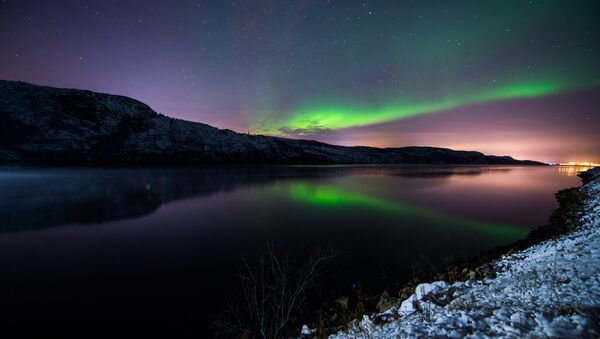Biologists and oceangraphers talked and talked before offering up a variety of reasons after nearly 30 giant marine mammals were discovered trapped and unable to move on coastlines in Germany, Holland, France and, of course, Britain in 2016.
The puzzle continued after autopsies showed the animals were mainly well fed, young and disease-free. Regardless of all the talk, however, no obvious answer was forthcoming surrounding the mass strandings during January, 2016 — until now, that is.
Interesting: Solar Storms may trigger sperm whale strandings.. https://t.co/Ju8N6pTiZk pic.twitter.com/JdYE8ua8x6
— Climate Realists (@ClimateRealists) September 6, 2017
Astronomers believe they can possibly shed valuable light as to the reason behind the riddle — solar storms.
Dr. Klaus Vanselow, of Kiel University, believes geomagnetic disruptions are the cause, having just published research in the International Journal of Astrobiology.
"Where the polar lights are seen, that's the region with the most geomagnetic disruptions on the Earth's surface. Sperm whales are very huge animals and swim in the free ocean so if they are disrupted by this affect, they can swim in the wrong direction for days and then correct it. But in the area between Scotland and Norway, if the whales swim in the wrong direction for one or two days, then it is too late for them to go back, they are trapped," says Dr. Vanselow.
The scientist believes that his theory makes perfect sense with the timeline of the discovery of the stranded whales up to six weeks after the solar storms.
He believes that because young males grow up around the Azores, an area that sees minimal impact from such storms, the creatures have little experience of the abrupt and powerful events that affect the poles.
Shift in Earth's Magnetic Field
Shortly before the whales were found dying on the beaches, a little further north, tourists and residents alike were enjoying one of nature's most illuminating events — the aurora borealis, or as they are more commonly known, the Northern Lights.
Around this time, the sun was particularly active during the Christmas festive period, spewing out charged particles that interacted with the Earth's magnetic field to produce stunning displays.
Although spectacular to witness, it is widely thought this light show interfered with the whales' navigation, resulting in them becoming disorientated and hundreds of miles off track.
Scientists believe that on this occasion in 2016, the solar storms in the area shifted the magnetic shield, possibly by as much as several hundred of miles.
This resulted in the whales swimming off course into the North Sea instead of skirting round to the west of Britain.
Adolescent male sperm whales migrate into the polar regions every year to take advantage of the large quantities of squid, part of their stable diet.
To help them find their way, it involves these sea giants to use an internal compass tuned to the Earth's magnetic field to navigate their journey.
Trapped and lost, the whales died after being diverted towards shallow waters before becoming stranded on the beaches.


